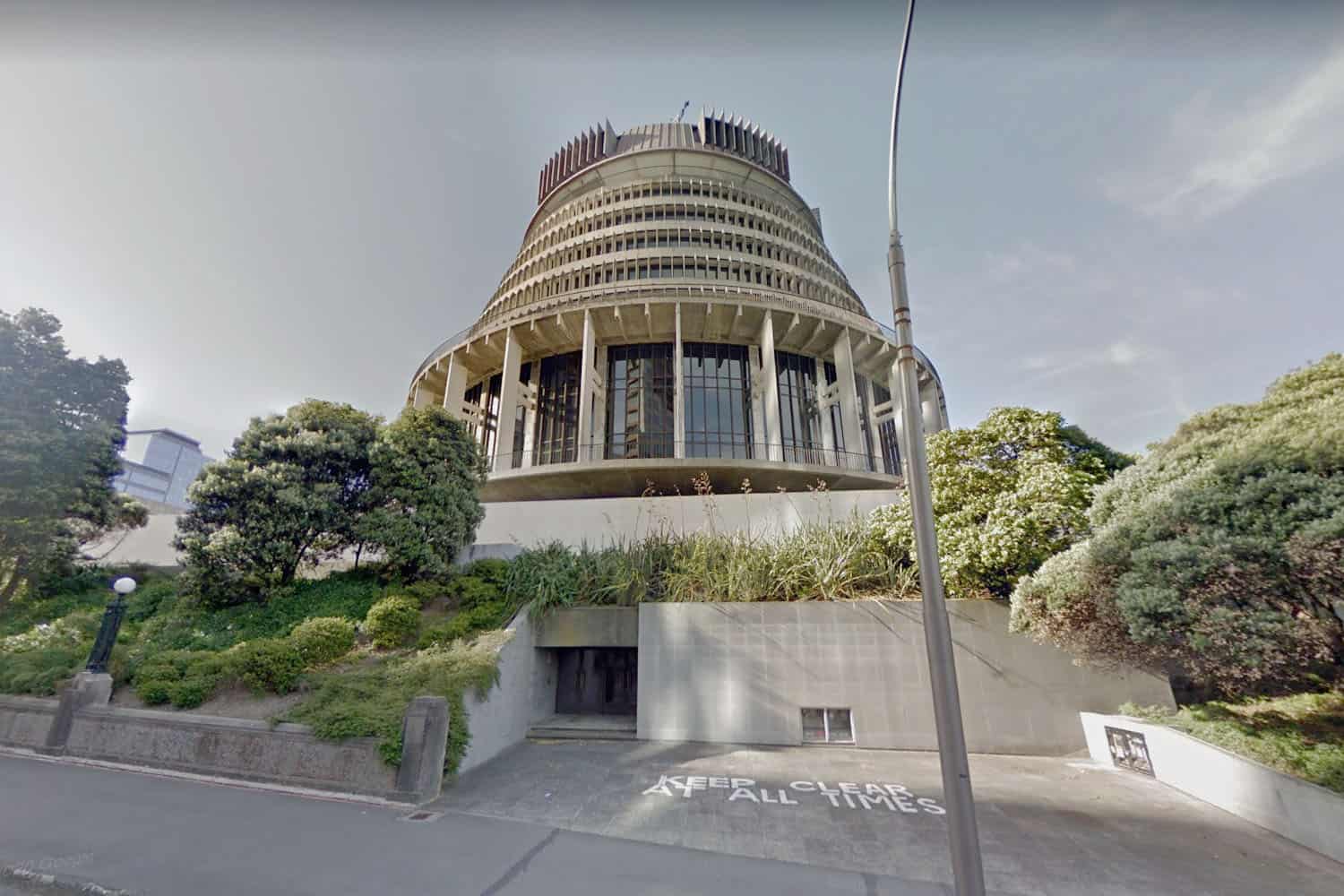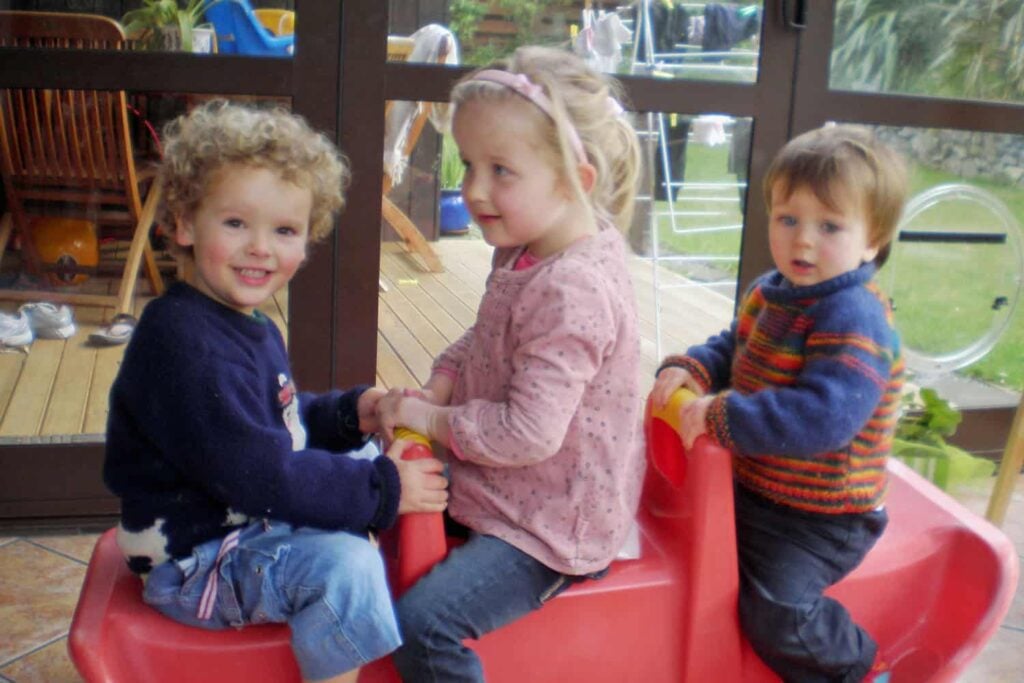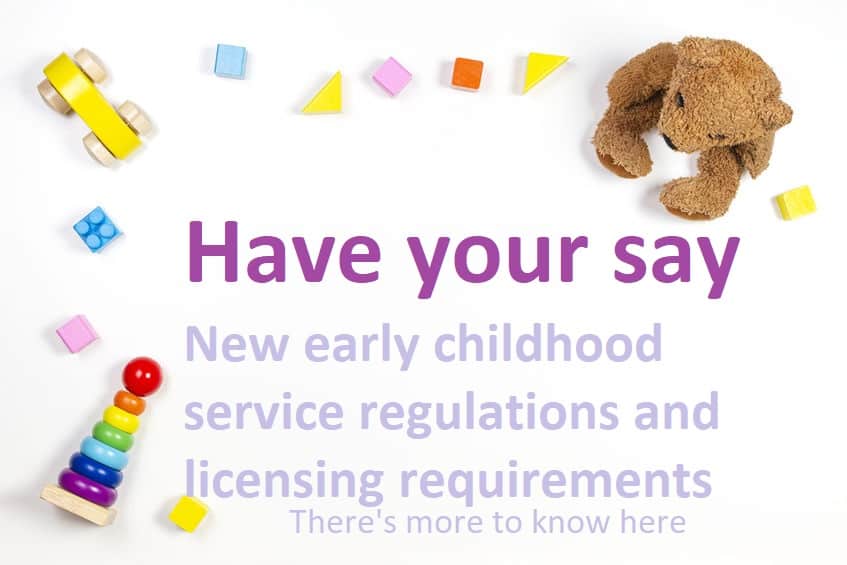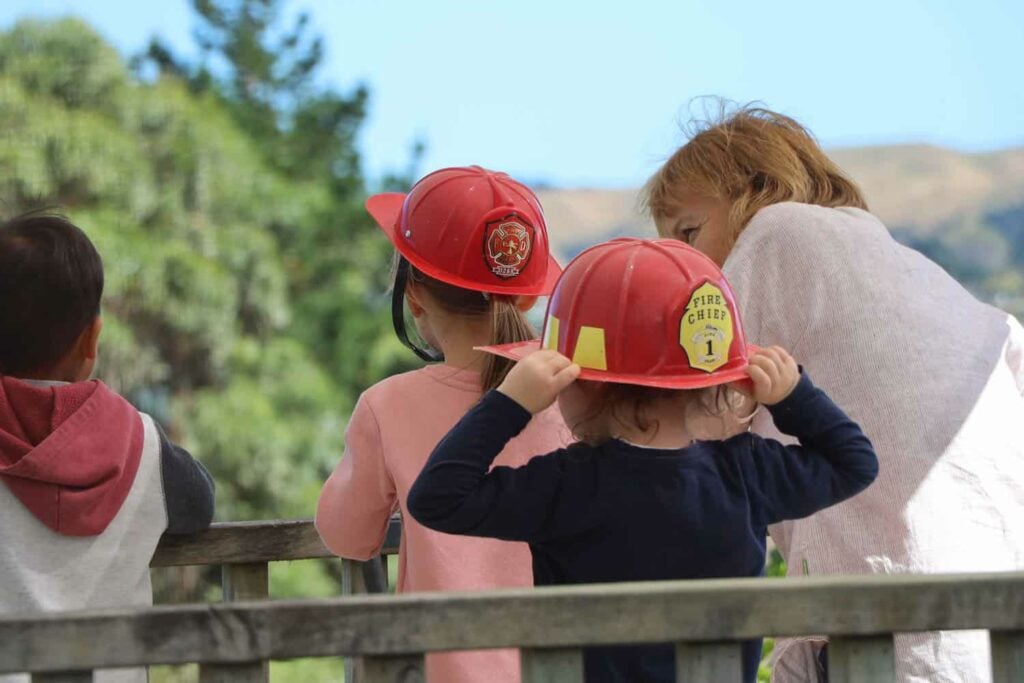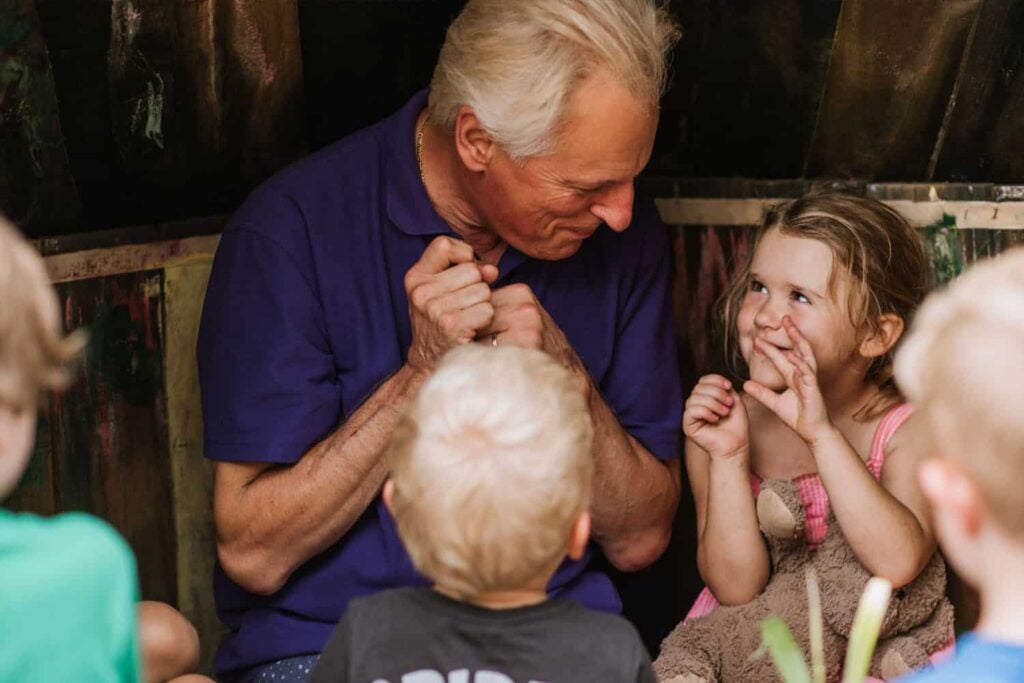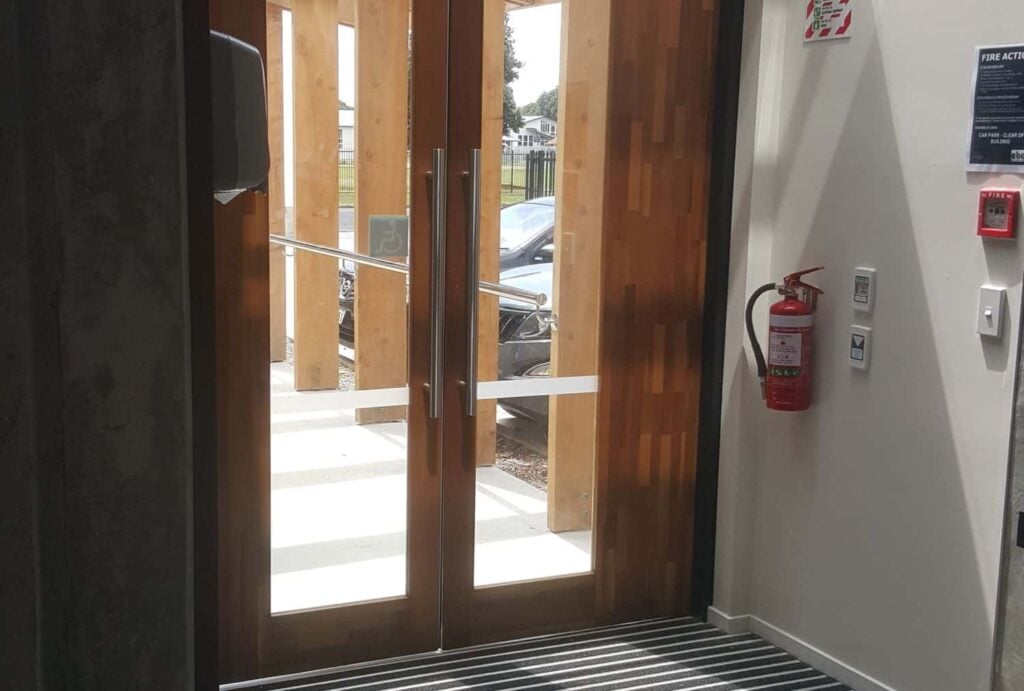2011 Election Promises.
This page contains 2 parts:
- A news article reviewing party promises just over one month out from the election.
- An updated outline of each party’s early childhood education election policy by bullet point.
News Article
The early years are recognised by most as crucial to a child’s development and it is often said that investing more money in early childhood education and those early years can save millions of dollars in the long-term and improve society as a whole by catching children before they develop problems.
Funding for quality early childhood education has already been a talking point recently with the Government reducing the targets for qualified teachers from 100% to 80% in a bid to cut spending and a push to increase participation in what are often seen as at-risk sections of New Zealand such as Maori and Pacific Island communities.
Just over one month out from the election a number of parties including the current Government – National – have yet to release their official policies for early childhood education.
We have contacted each party to ask for its ECE policy but so far not all have replied. Of those that have the main talking points seem fairly obvious – the percentage of qualified teachers, the 20hours subsidy scheme and staff to child ratios are mentioned by most
At first reading it seems that most of the parties will be campaigning on similar promises.
For example most of the parties which have released ECE policy so far have said they will restore funding in some way to increase the number of qualified teachers back to the previous 100% target.
The notable exception to this is the National Party which, of course, reduced the qualified teacher percentage to 80% and looks likely to stick by this decision. National has stated many times that it needs to control spending in some areas in order to increase spending in others and the reduction in qualified teachers to 80% is a major way for it to reduce that spending. What is unclear so far is how those parties campaigning to restore the higher ratio would fund it.
Staff to child ratios is also a popular area for debate with United Future and the Green Party being particularly specific in this area.
The Greens’ policy sets out the following specific ratios for each age group:
- 1:3 for under-twos with a group size of no more than 6 children
- 1:5 for two to three-year-olds with a group size of no more than 12 children
- 1:8 for over-threes with a group size of no more than 24 children
United Future states it would prioritise staff to child ratios for each age group as a condition of funding for ECE centres.
The 20hours free subsidy also looks like it will be an election issue once again with most parties stating they would continue to provide a subsidised number of hours for 3 and 4 year olds.
However Government subsidies are coming under scrutiny from some of the smaller parties, with the Mana Party saying that although it would restore funding for teacher-led ECE centres, they would “phase out public funding for profit-driven centres”.
United Future has also said it wants to make sure government funding is reflected in costs passed on to parents by requiring services to disclose what proportion of their fees are funded by the taxpayer.
National has said previously it intends to use some of its ECE budget to increase ECE participation among specific groups such as Maori and Pacific Island communities and this is also included in other parties’ policies.
The Green Party would support improved resources for community based not for profit services such as Kohanga Reo and Pacific Island language nests while the Mana Party devotes a large part of its ECE policy statement to Kohanga Reo which it says needs an independent review. It would increase funding for Kohanga Reo but would also seek to increase training for leaders and managers.
Several of the parties talk of using ECE centres and services as hubs within their communities and of promoting parent, whanau and community involvement.
United Future is particularly focused on parents as primary educators saying parents are “drivers of their children’s education, implicitly and explicitly” and say they would like to pilot using ECE centres as contact points for things such as parenting courses and health and counselling services as well as expanding programmes such as PAFT (Parents as First Teachers) and HIPPY (Home Interaction Programme for Parents and Youngsters) to families other than those deemed at risk.
Labour and the Greens have also indicated they would try and increase parent, whanau and community involvement. The Green Party has also stated it would aim to encourage mothers to breastfeed their children in ECE services and investigate the idea of providing free healthy breakfasts in all ECE centres.
One policy area not directly related to ECE but likely to have a knock-on effect which could also become a talking point is paid parental leave. This is an area which has been debated for some time and Labour, the Green Party, United Future and the Mana Party have all stated that they would seek to increase the period of paid parental leave. If this were to be the case it may have an effect on ECE with new parents perhaps making different decisions on how long to stay at home with their child and how to use ECE.
While National Standards in schools has been the focus of talk about education recently, the early childhood sector still has plenty of interest this election, particularly if National sticks to its decision to reduce the number of qualified teachers.
The Election Policies of Each Political Party
This information was last updated on 21st November. Election scheduled for 26th November 2011.
United Future
We believe parents are the drivers of their children’s education, implicitly and explicitly and we want to support them in this role, by giving them the skills to be their child’s first teacher, so that every child is raised in an environment which values education and supports educational aspirations. It also means we will allow parents, and not the government, to choose the most appropriate provider of pre-school education for their child.
Policy
- Encourage more men to join the teaching profession at all levels.
- Address the growing achievement gap between male and female students.
- Support the concept of parents as first teachers and encourage the expansion of programmes like PAFT and HIPPY to families other than those deemed to be at-risk.
- Endorse the role of parent-led early childhood education centres to empower parents to lead their children’s education and encourage the parent-child bond.
- Support the idea that 3 and 4 year olds should have 20 hours (or part thereof) early childhood education per week heavily subsidised, where it will make early childhood education and care more affordable for families and/or improves children’s learning.
- Promote an increase of funding for early identification of children with special needs and disabilities with targeted systematic, intensive and high quality interventions.
- Ensure that government funding of early childhood centres is reflected in the fees passed on to parents by requiring them to disclose what proportion of fees, are taxpayer-funded.
- Pilot the use of early childhood education centres as contact points for family support services, such as parenting courses, budget advice, health and counselling services.
- Prioritise staff-to-child ratios for each age group as a condition of funding for early childhood education centres where applicable.
- Simplify with a view to reducing the quantity and complexity of compliance requirements that early childhood education and care providers must fulfil.
Labour
Early childhood is a precious opportunity and it is imperative that every child is given the opportunity to get the best possible start in life. In government Labour built a world-leading early childhood education system with increased participation and increased quality. There is much more to be done here, in both access and quality. Labour will work to ensure the ECE workforce is the best it can be, able to properly prepare each child for school.
Policy
- Deepen Child Protection and development partnerships between Health, CYF and Education for the identification of at risk children
- Restore over the course of two terms the $95 million p/a subsidy funding cut, and we will work with the sector to reinstate the policy of 100% qualified staff in all teacher-led services.
- Retain the 20 hours free ECE model that is universally available to all children aged three and four, and those five-year-olds who aren’t yet in school. This means retaining fee controls and the current subsidies to ensure families don’t face increased costs. Labour’s model will cover the cost of delivering the curriculum to each child for 20 hours per week.
- Develop a planned approach to taxpayer-funded ECE. New centres will only receive taxpayer subsidies for providing ECE if there is a need for a new centre in the proposed location.
- Enable more quality services to be available in communities with lower participation. This includes investigating transport issues that are barriers to participation and evaluating the success of supported play groups
- Take a two pronged approach to early interventions for the most vulnerable 5% of children, with intensive home based support provided during the first 18 months, but moving towards a greater emphasis on centre-based early intervention programmes between 18 months and 3 years of age.
- Provide free high-quality Early Childhood Education and parent support from 18 months to 3 years for the most vulnerable 5% of children.
- Long term aim is to develop a network of high quality centre-based early intervention programmes addressing the needs of vulnerable children in the most deprived areas.
- Integrated community hubs will be developed over time
- Funding for Playcentres, Te Kōhanga Reo, and home-based ECE services will not be cut to ensure that these services continue to play an important part in innovating and enhancing our ECE sector.
- A policy framework will be developed to focus on children aged 3 to 8 to provide a more cohesive and efficient approach to the transition between ECE and primary school, and focus on supporting the progression of the children in their early years regardless of the educational setting.
- Increase Pasifika participation rates, particularly in ECE.
- Encourage whānau to participate fully in education and life-long learning – from early childhood and compulsory education to tertiary, wānanga or training.
NZ First
The importance of the early years of development is recognised by New Zealand First. In particular, New Zealand First affirms the importance of the family for the optimum development of children and will develop and fund programmes which will provide all families with support and guidance in this role. Moreover, for formal early childhood education, New Zealand First will continue to pursue the joint goals of increased participation rates and enhanced quality provision, in particular, for those groups which have least access to high quality programmes.
Policy
- Encourage Family Start Programmes across the country aimed at those children at greatest risk of less than optimal development;
- Make available “Home Instructional Programme for Pre-schoolers and Youngsters” (HIPPY) programmes to all families with low levels of educational capital
- Support genuine New Zealand models of governance that exist in Maori-run early childhood centres within the context of kaupapa Maori based whānau involvement
- Develop Parents as First Teacher (PAFT) programmes across the country
- Combine all parent-caregiver support programmes under the umbrella of a single agency
- Explore and establish new funding options in early childhood education which would enable Nga Huarahi Arataki to remain neutral with multiple pathways in early childhood education
- Increase the discretionary grants available to communities for building or upgrading early childhood facilities in order to increase participation rates
- Explore the possibilities of enabling early childhood centres to be funded for more than six hours per day and for weekend sessions
- Develop a set of principles defining which languages will be supported, and to what degree
- Establish a fund for research into best practice and innovation in early childhood education.
Mana Party
Education is at the heart of social and economic progress for individuals and communities. It should foster critical thinking on all aspects of life, not just to ensure life opportunities and economic progress, but also to enable imaginative thinking about how to address human problems. Community based not-for-profit early childhood centres such as Kindergartens, Playcentre and Kohanga Reo provide quality education while private corporate centres provide quality based on ability to pay.
Policy
Early childhood education
- Restore quality standards and funding for teacher-led early childhood centres and increase funding to parent-lead early childhood centres (kōhanga reo, kindergartens, and Playcentre) to ensure that every child is able to participate in quality early childhood education.
- Phase out public funding for profit-driven ECE centres.
- Increase public provision of ECE centres in low and middle income areas and site these with existing schools to promote schools as community centres.
- Review of ECE qualification to include more emphasis on Te Reo Maori and Tikanga Maori.
- Annually audit all ECE centres licensed as total immersion Te Reo Maori or bi-lingual on the amount and quality of Te Reo Maori delivered to children.
- Make places available in Kura Kaupapa Maori schools for 100% of all ECE total immersion Te Reo Maori five year olds.
- Encourage whanau participation as integral to the success of ECE.
Kohanga Reo Specifically
- Conduct an independent review of the role and function of the Kohanga Reo National Trust.
- Review the management by whanau of Kohanga Reo.
- Provide greater regional and iwi management of Kohanga Reo based on the needs of local communities.
- Conduct a review of Whakapakari tohu with tohu recognised as equivalent to a teaching diploma. Local delivery of kaiako training courses with localised support and an emphasis on health and safety, nutrition, human development, teaching and behaviour management.
- Make training for kaiako and parents in Te Reo Maori more accessible.
- Review Kohanga Reo buildings with an emphasis on recommendations to improve heating, safety and sanitation based on Mana housing policy. Set budgets to move Kohanga out of the “skyline garage phase” and into decent buildings.
- Promote eco principles in new Kohanga buildings: self supplied water, power and heating and self disposal systems, including effluent. Encourage rural Kohanga and Kohanga Reo to be actively used by the wider community and identified as civil defence centres.
- Include fruit trees and gardens in rebuilt centres.
- Provide equal funding rates to Kohanga Reo in relation to teacher-led early childcare centres, including support for staff in training.
- Ensure places are available in Kura Kaupapa Maori schools for 100 % of all Kohanga Reo five year olds.
- Provide compulsory management training for Kohanga Reo leaders and managers.
- Provide the option for Kohanga Reo to extend licensing hours from 8.00am to 5.30 pm with funding for the additional hours. This will help support working families to attend Kohanga Reo.
- Make available 20 hours free ECE (for 0-5 years) available for whanau in hardship and with more than two children under five.
- Encourage whanau participation in Te Reo Maori classes and parenting classes based at Kohanga. Recognise these as full time classes with parents receiving student allowances and childcare subsidies.
- Review special education services to provide more accessibility to Kohanga Reo and more Maori kaiako trained in special education from a Maori perspective to work closely with Kohanga Reo and ECE centres.
- Provide health services with local nurses/doctors making regular visits to clinics at Kohanga Reo.
- Recognise kaumatua fluent in Te Reo Maori as taonga and fund to attend Kohanga (but not to be responsible for tamariki).
- Make funding available for Kohanga Reo to provide healthy, nutritious, organic meals for tamariki.
- Review transport arrangements with support for eco options. All van drivers to attend compulsory defensive driving courses and receive first aid training.
- Provide compulsory trustee training if a Kaitiaki roopu of community representatives is established at a local level to help govern Kohanga Reo.
Maori Party
Whānau-ora: restoring the essence of who we are; putting the vibrant traditions from our people at the heart of our whānau. Te Tiriti o Waitangi remains a covenant of utmost meaning. Only if the Treaty is honoured will mana be restored, and whānau able to participate fully and willingly in the nation. We want a Government that values accountability and serving the people; we want a public
service that understands the aspirations of whānau, hapū and iwi.
- Recognise the unique status of kohanga reo through its own statutory legislation. This could then be linked to te reo in the homes being revitalised through encouraging parents in assisting children in learning and drawing on the knowledge and expertise of kuia and koroua.
- All legislation going through parliament to be measured against te Tiriti o Waitangi.
- Monitor cultural competency in all agencies to ensure the quality of services, and equity of access and outcomes to bring out well-being.
- Ensure early childhood education as the foundation to our future is affordable, available and responsive and includes initiatives such as PAFT, HIPPY, PAUSE, PAUA, kōhanga reo and whānau led centres.
- Initiate nationwide discussion about compulsory early childhood education.
- Establish a Ministry of Families inclusive of children, young people and whānau. The new Ministry will include functions from the Families Commission, the Children’s Commission; Family and Community Services, Ministry of Youth Affairs and Child, Youth and Family and the Office for Senior Citizens.
Green Party
Recognises the vital role of Early Childhood Education (ECE). The early years are crucial to all aspects of a child’s development and play a huge part in determining long-term prospects. If we invest in getting ECE right, we save millions of dollars in the long-term and contribute to the wellbeing of our whole society. This includes properly valuing and recognising the important work of ECE services and their staff.
Policy
Funding, ratios, and qualified teachers
- Re-establish the target of 100 per cent qualified staff in teacher-led ECE centres, and resurrect the funding to support this.
- Implement new teacher to child ratios in ECE (and provide funding so that these can be met):
- 1:3 for under-twos with a group size of no more than 6 children;
- 1:5 for two-to-threes with a group size of no more than 12 children; and
- 1:8 for over-threes with a group size of no more than 24 children.
- Increase funding so that there are adequate resources in te reo for kohanga reo.
- Revise and improve the funding system for early childhood services in consultation with the sector.
Support for teachers and staff
- Improve pay, job security, and professional development for teachers and aides.
- Support pay parity for early childhood, primary and secondary educators, based on qualifications and responsibility.
- Provide one year of sabbatical leave at 80 per cent salary for all teachers after six years of service.
- Develop initiatives that relieve the administrative workload of teachers.
- Continue to support and adequately resource Te Whariki – the curriculum for ECE.
ECE and the community
- Improve demographic and population-based planning to allow for better prediction of demand for early childhood services, while not disadvantaging rural communities.
- Foster partnerships between ECE centres and local primary and secondary schools.
- Encourage parent, whanau, and community participation in ECE.
- Encourage mothers to breast feed their children in early childhood services.
- Investigate providing free healthy breakfasts in all primary schools and ECE centres.
Environmental ECE
- Incorporate environmental education into the ECE curriculum (eg gardening, using water and energy efficiently, learning about conservation), and ensure that teacher education and training is adequate to allow this.
Inclusive ECE
- Support improved resources for community-based ‘not for profit’ early childhood services, including kohanga reo, Pacific Island language nests and other culturally appropriate learning options.
- Ensure that all early childhood services have policies, practices, and programmes to create an inclusive culture.
- Develop and fund an Inclusive Education Policy based on the premise that all children have a right to fully participate in ECE no matter what their perceived ability.
National
Early childhood education (ECE) plays a valuable role in a child’s development. It is one of the greatest investments we can make in the future of New Zealand children.
Policy
- Set a target of 98 per cent of new entrants in school having participated in early childhood education, to be met by 2015.
- To ensure children get the best start in school we will actively work to lift participation rates in areas of low participation especially among Maori and Pasifika children. In Budget 2011, National announced we would set up an early learning information system, allowing us to track how many children are attending ECE and for how long. This data will allow us to focus our efforts on areas where it is needed most.
- Bring back mobile ECE services by changing the regulations so rural areas can more easily access ECE.
- Maintain 20 hours ECE funding and the current fee controls for 20 hours ECE.
- Make available interactive web tools, providing good information about local ECE services.
- Work to develop a funding model that is flexible and reduces bureaucracy, while retaining the universal 20 hours early childhood education programme.
- Maintain a diverse range of ECE services.
- Maintain funding for Playcentres and Kohanga Reo.
ACT
The aim of ACT’s policy is to ensure that our children receive maximum benefit from the resources our society is prepared to invest in your sector. Unfortunately we don’t have limitless resources, so we need to do the best humanly possible with that which is available.
Our policy with regards to ECE can be summed up in two main points:
1. ACT believes funding should follow the child, not the whims of Wellington bureaucrats; and
2. Government funding should be targeted based on need, not dished out to all and sundry.
Policy
- Remove funding disparities between public kindergartens and private ECE providers.
- Remove the 20hours subsidy scheme and look at other ways of subsidising ECE.
- Ensure that funding follows the child and is targeted based on need.


